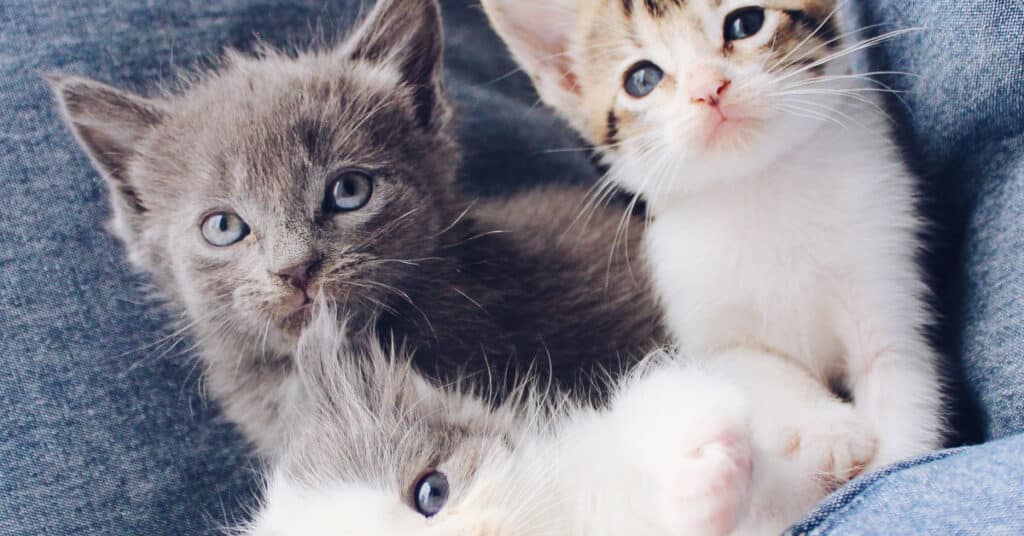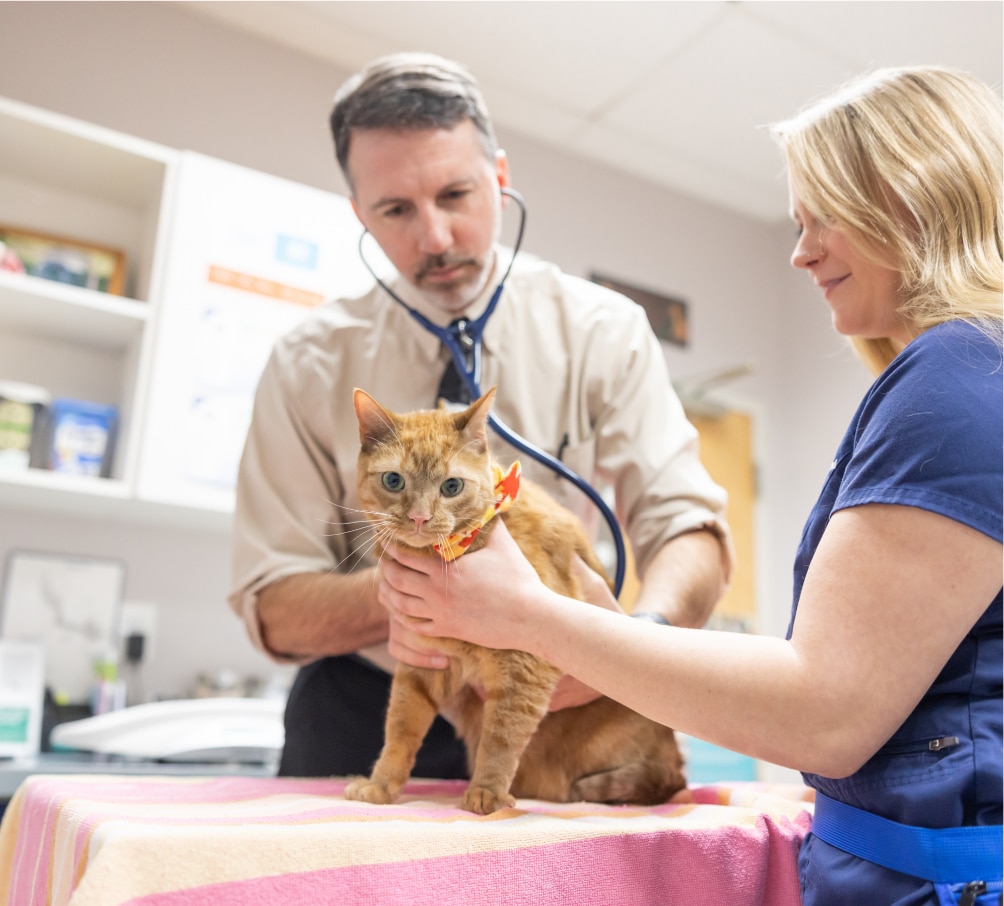Sleepy cats are known for their slow-blinking eyes, which is a sign of trust and affection. But if your furry friend is having trouble keeping his eyes open, the reason could be far less cute. This could indicate an infection.
Kittens are especially prone to eye infections due to their immature immune systems.
If you suspect your kitten has an eye infection, it’s crucial that you act fast. Early detection is essential for preventing long-term damage to your cat’s eyes. If left untreated, an infection of the eyes could lead to vision problems or even blindness.
Symptoms of a Kitten Eye Infection
Unfortunately, our pets can’t tell us when they aren’t feeling well. Instead, we must keep a close eye on their behavior and monitor any changes.
Symptoms of an eye infection might include:
- Pink eyes
- Cloudy or dim eyes
- Swollen eyelids
- Discharge from the eyes
- Crust in the corner of the eyes
- Blinking, winking, or squinting more than usual
- Rubbing eyes
- Acting lethargic or hiding
As you may be able to tell, these symptoms are broad and could indicate a variety of issues. The presence of these symptoms is not enough to determine a diagnosis. A visit to the vet is the best way to ensure your kitten receives the treatment he needs.
What Causes Eye Infections in Kittens?
Most commonly, eye infections are caused by contagious agents, such as bacteria and viruses. Chlamydia and mycoplasma are the two most commonly diagnosed bacterial infections.
As for viral infections, feline herpesvirus type 1, feline viral rhinotracheitis, and calicivirus are common.
These diseases are often transmitted through exposure to other infected kittens and high-stress environments. If your little one spent time in a shelter, a foster home, or out on the streets, this could be where the infection originated.
It’s also important to note that eye infections are more likely to occur in kittens with an intestinal parasitic infestation like worms. This is because the presence of worms weakens the kitten’s immune system, increasing the risk of other infections.
If the problem arose long after the cat was in a stable environment, the cause can also be non-infectious. These other causes might include:
- Ulcers on the cornea
- Foreign bodies in the eyes
- Ocular tumors
- Tear duct damage
- Allergens
- Trauma to the eye or eyelid
- Autoimmune disease
- Cancer
How Are Eye Infections in Kittens Diagnosed?
To determine the cause of the infection, your veterinarian will complete an exam. They will evaluate the structures of the eyes and look for systemic signs of an upper respiratory infection.
The vet will also likely take a small swab or scrape cells from the inflamed areas. These samples can be analyzed in a lab to look for infectious agents.
If a secondary systemic problem (such as tumors or an autoimmune disease) is suspected, the veterinarian will recommend additional testing or bloodwork. This will help rule out any larger issues causing the infection and threatening the health of your kitten.
Treatment for Kitten Eye Infections
Thankfully, eye infections in kittens are easy to treat.
Bacterial infections are treated with antibiotics, usually in the form of a topical ointment or eye drops. Severe cases may require steroids or antiviral medications.
Within just a few days, the problem should begin to clear up.
Any other issues that arise during the examination will be treated according to the diagnosis. The eye infection can often be treated separately and simultaneously, reducing the kitten’s discomfort in the meantime.
Skilled Veterinary Hospital in Frederick, MD
If your kitten is displaying symptoms of an eye infection, bring him to Old Farm Veterinary Hospital. We will work quickly and thoroughly to determine the cause and develop a treatment plan.
We are conveniently located in Frederick, Maryland. Our experienced vets are excited to help your pet feel better. Schedule an appointment today!



